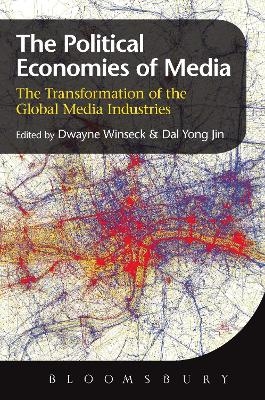
The Political Economies of Media
Bloomsbury Academic (Verlag)
978-1-84966-353-3 (ISBN)
This book is available as open access through the Bloomsbury Open Access programme and is available on www.bloomsburycollections.com.
Some advocates and more than a few critics have misconstrued the political economy of media as a unified field of inquiry. The authors from this volume, by contrast, draw from a more diverse stream of the schools of thought signified by this tradition: Neoclassical Economics, Radical Media Political Economy, Schumpeterian Institutional Political Economy, and the Cultural Industries School. The book as a whole is as alert to developments in our main objects of analysis - media institutions, technologies, markets, uses and society - as it is to changes in the world around us, including current trends in communication and media studies.
The contributors show that digital media are disrupting entire media industries, but without erasing the past. Throughout, the impact of the unprecedented wave of media consolidation in the late-1990s and the financial crisis of the past few years loom large. The authors also suggest that there is no 'supra logic' of 'total system integration' that spans the network media, while insisting that one media sector is not the same as the next. Social networking activities often beg, pilfer and borrow 'content' from 'traditional media', but it remains the case that Time Warner, Comcast, the BBC and News Corp. are very different creatures than Apple, Baidu, Facebook or Google. In other words, even in the age of convergence and remix culture, different media continue to display their own distinctive political economies, as the volume's title - The Political Economies of Media - signals.
Dwayne Winseck is Professor at the School of Journalism and Communication, Carleton University, Canada. Dal yong Jin is Assistant Professor at Simon Fraser University and Associate Professor at Korea Advanced Institute of Science and Technology.
List of Figures
List of Tables
List of Contributors
Preface
Acknowledgments
Part One: Introductory Essay 1
The Political Economies of Media and the Transformation of the Global Media Industries: An Introductory Essay 3
Dwayne Winseck, Carleton University
Part Two: From the Singular to the Plural-Theorizing the Digital and Networked Media Industries in the
Twenty-First Century
Principal ongoing mutations of Cultural and Informational Industries
Bernand Miège, Carleton University
Media Ownership, Oligarchies, and Globalization: Media Concentration in South America
Guillermo Mastrini and Martín Becerra, University of Buenos Aires
Media as Creative Industries: Conglomeration and Globalization as Accumulation Strategies in an Age of Digital Media
Terry Flew, Queensland University of Technology
The Structure and Dynamics of Communications Business Networks in an Era of Convergence: Mapping the Global Networks of the Information Business
Amelia Arsenault, Annenberg School, University of Pennsylvania
Part Three The Conquest of Capital or Creative Gales of Destruction?
Hard Jobs in Hollywood: How Concentration in Distribution Affects the Production Side of the Media Entertainment Industry 123
Susan Christopherson, Cornell University
Financialization and the "Crisis of the Media": The Rise and Fall of (Some) Media Conglomerates in Canada
Dwayne Winseck, Carleton University
Deconvergence and Deconsolidation in the Global Media Industries: The Rise and Fall of (Some) Media Conglomerate(s)
Dal Yong Jin, Simon Fraser University
Navigational Media: The Political Economy of Online Traffic
Elizabeth Van Couvering, Leicester University
The Contemporary World Wide Web: Social Medium or New Space of Accumulation?
Christian Fuchs, Uppsala University
Part Four Communication, Conventions, and "Crises"
Running on empty?: The Uncertain Financial Futures of Public Service Media in the Contemporary Media Policy
Environment
Peter A. Thompson, University of Wellington
Mediation, Financialization, and the Global Financial Crisis: An Inverted Political Economy Perspective
Aeron Davis, University of London
The Wizards of Oz: Peering Behind the Curtain on the Relationship
Between Central Banks and the Business Media
Marc-André Pigeon, Carleton University
References
Suggested Subject Index Terms
| Erscheint lt. Verlag | 1.7.2011 |
|---|---|
| Verlagsort | London |
| Sprache | englisch |
| Maße | 156 x 234 mm |
| Gewicht | 644 g |
| Themenwelt | Sozialwissenschaften ► Kommunikation / Medien ► Journalistik |
| Sozialwissenschaften ► Kommunikation / Medien ► Medienwissenschaft | |
| Wirtschaft ► Volkswirtschaftslehre ► Wirtschaftspolitik | |
| ISBN-10 | 1-84966-353-X / 184966353X |
| ISBN-13 | 978-1-84966-353-3 / 9781849663533 |
| Zustand | Neuware |
| Haben Sie eine Frage zum Produkt? |
aus dem Bereich


